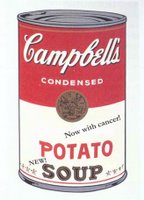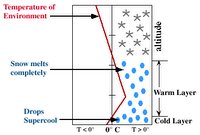Ok. School has started.
One class i’m doing is called Applied Microbiology and Immunology, doesn’t sound like very much but essentially it’s about the business of science. People from academia and industry will be coming in to speak to us about patents, big pharmaceutical companies, small biotech startups, and get this - even a FAILED biotech company. We live in a society where success is blatantly tooted in your face again and again, so much so that we’re averse to failing. I don’t deny that I do NOT like to fail. (Failed a damn communications exam last year. Apparently I can’t communicate.yay.). It’s great that they thought of showing us some of the failures out there.
But anyway, a part of the lecture got me really intrigued and I’d just like to share some thoughts. It may be a little scientific but i tried my best to be less technical.
!!Geek Warning!!
------------------------------
About 20% of all human genes have been
patented.*
That makes about 4000 genes with its exclusive rights assigned to someone else for a certain amount of time.
*in the US. Patents are awarded differently in different patent offices around the world.What does this mean for you and me?
Does it mean that in producing insulin (insulin was patented in 1923) to regulate the metabolism of out carbohydrates, we’ll need to pay some dude royalties?
Are genes even patentable
in the first place??
The first criterion for patentability is that the gene in question must be NEW.
It can’t be new if it was already there in your body in the first place, can it? Well, it turns out that a gene as it exists in a chromosome in your cells is obviously not new at all; however, a gene that has been extracted, isolated, cloned and amplified can be (and has been) accepted as an artificial, man-made and therefore, new form. So no, you can go metabolize your carbohydrates in peace. Your genes are not patented as they exist inside you, but you might not wanna take any of them out of your cells.
The second criterion for patentability is that the gene in question must be USEFUL.
Now, utility of a gene is not always obvious. Certain genes have been identified to be implicated in carcinogenesis. One example is the BRCA1 gene, a tumour suppressor gene, which has been found to be defective in breast cancer patients. Using isolated BRCA1, cancer detection tests can be developed and it even evokes the possibility of gene replacement therapy. A gene in a direct relationship with a disease is obviously useful.
However, other genes may not present such possibilities:
In 1995-1996, it was discovered that chemicals called chemokines produced in our body suppressed HIV infections. Subsequently, it was determined that the virus enters cells by latching onto a chemokine receptor called CCR5 on the surface of the cell. People with defective CCR5 genes, and thus do not express the CCR5 protein are less susceptible to HIV!
Imagine, what an incredible achievement for anti-AIDS drug development efforts!
But wait!! Hold your horses. The party pooping has just begun.
Get this: the gene had
already been patented by a company named Human Genome Sciences.
If somebody uses this gene in a drug discovery program after the patent has been issued to find drugs [...] and does it for commercial purposes, they have infringed the patent. […] And if a company brings a drug to market after infringing the patent, we'd be entitled not just to damages, but to double and triple damages.
- William A. Haseltine, Chairman, Human Genome Sciences
Oh not just to damages, boys and girls, but to DOUBLE and TRIPLE damages. It sounds like the guy has been playing too much friggin' Mortal Kombat or something man! Power up! Special press-many-button move!! TRIPLE KILL!! OWNING!!!
*ahem*
So now where to draw the line between science and business, between ‘cure the world’ and ‘let’s get a monopoly of this thing we don’t know much of and make shitloads of money of the people who need it’?
Is it correct to reward the person who made the discovery and did no further work on it, at the expense of the scientists and companies who throw themselves head first in working on a drug?
If the patent office awards a patent to someone who clones a gene, even though they have no notion of its function and no real idea of its use, that would be like saying, 'I found a fungus, therefore I should get credit for penicillin.
- Dr. Robert Gallo, co-credited (controversially) with the discovery of HIV
The first-to-invent or first-to-file patent system is in this case debatable, especially when HGS officials acknowledge that they had zero knowledge of the gene’s role in HIV infection at the time when the patent was filed. It sounds frivolous, but that’s the whole point of the patent system in the first place, isn’t it? To protect discoveries and inventions on a first-come-first-served basis, in doing so, handing its inventors a monopoly in exchange for the information, even if it was based on a marginal claim of use. This is the way the system works.
Patenting has to be in place to protect discoveries and to give incentives to the large pharmaceutical companies to invest and develop effective drugs (after all these are multi-million dollar investments, no company would ever back research without a tangible monetary reward expected).
But paying silly companies who jumped in before the crowd just to claim ownership and resulting fees before the guys who really produced something worthwhile with it? That’s just bullshit, 'robber barons of the genetic age'. The patents office has to be more stringent with the definition of usefulness of a proposed genetic sequence before they hand out patents like they were raffle tickets.
What are they gonna say next? I want a patent for this gene so I can use it to produce expensive, overglorified toilet bowl cleaner? It’s useful, as marginal as it may be, so let’s just wait till the next guy comes around and turns it into some anti-cancer drug. Hooray!




















